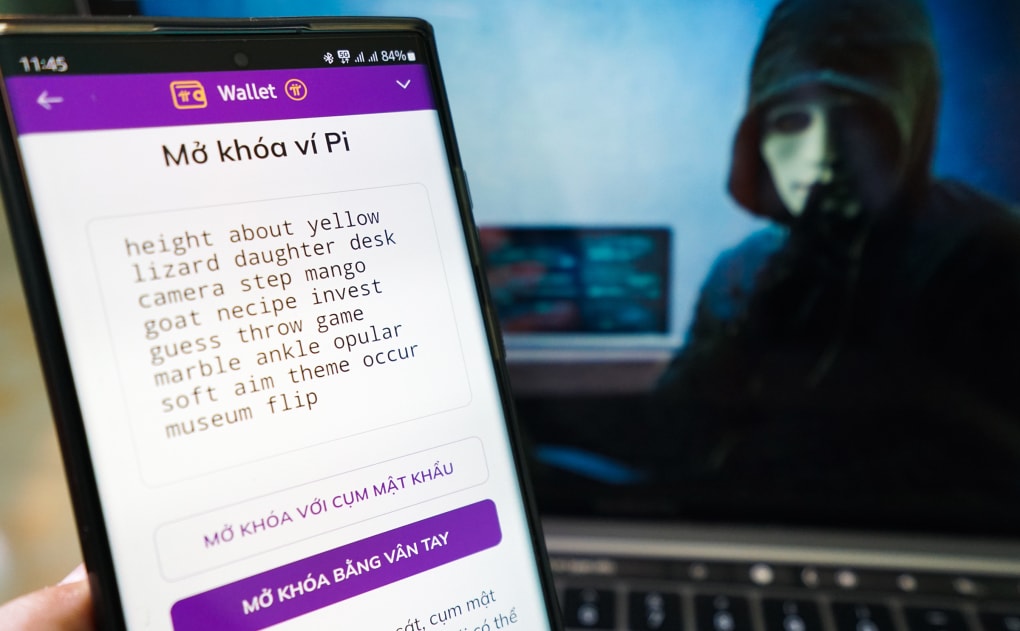When Pi was listed on the exchange, many people who had 'mined' this virtual currency went online to find ways to retrieve their wallet keys, but some were scammed.

Hong Hoa (Quang Tri) said she has been mining Pi since the early days, has more than 4,000 Pi, of which about 1,000 Pi have been transferred to the mainnet wallet. By 2023, she gave up the habit of "lightning" mining Pi despite having KYC (identity verification).
"After some exchanges listed it at $2 on February 20, my Pi is now worth around $2,000. I can't access my account and am trying to get my old wallet key back, accepting a fee of half the above Pi but have not been successful yet," she said.
On social networks, many "early" Pi Network players also posted asking the community to help them retrieve their passwords. Hoang Anh, administrator of the Pi Network group on Facebook with more than 150,000 members, said that over the past 10 days, the group has received more than 20 posts on this topic every day, even though it only approves a few typical cases.
"Before that, there were only a few posts about finding wallet keys. It seems that old players started reinstalling the app to get Pi, especially those who had KYC but couldn't remember the password," commented Mr. Hoang Anh.
Similar to other digital wallets, Pi Wallet or Pi Wallet consists of a pair of keys: a public key used for transactions and a secret key, or "seed cluster" consisting of 24 randomly generated words, which must be kept absolutely secure. Unlike a normal password, when this cluster is lost, there is almost no way for the player to get it back, which means the Pi in the wallet is lost forever.
Taking advantage of players' need to get back their "seed clusters", many "services" have appeared on social networks. However, experts warn that most of them are scams.
Thế Hoàng, who has been playing Pi Network since 2022, said he carefully wrote down the password in the notebook. However, he could not log in successfully, possibly because he had misspelled a character. "Because I had nearly 800 Pi in my mainnet wallet, I looked for a service on Facebook. They quoted a cost of 5 million VND, asking me to install additional software to 'recover' the password and record the screen," said Hoàng. "Suspecting a scam, I did not follow it."
According to Mr. Vo Do Thang, Director of Athena Cyber Security Center, in reality, there are still some Seed Phrase Recover (SPR) software that can detect and recover wallet passwords, but usually only recover a single word in the phrase. Therefore, if the user forgets only one word, there is a high chance that the wallet can be recovered, but two or more words are impossible.
According to Mr. Thang, users should not trust online advertising services because in reality, with current technology, it is almost impossible to recover the entire cluster.
“Users may have to contact the developer behind it directly, but this is not easy,” said Athena security expert. “With services, it is possible to trust people with a voice in the crypto community, but even in this case, it is advisable to only deposit 5-10% of the agreed amount to limit financial losses.”
Pi Network was born in 2019, advertised to help participants own free Pi virtual currency by entering the phone application "pressing the lightning bolt" to check in every day. Vietnam is one of the markets with many people participating in "Pi mining". The project caused controversy when it took nearly 6 years to "open the network", meaning allowing users to move Pi to other platforms for exchange and trading from February 20.
TB (according to VnExpress)